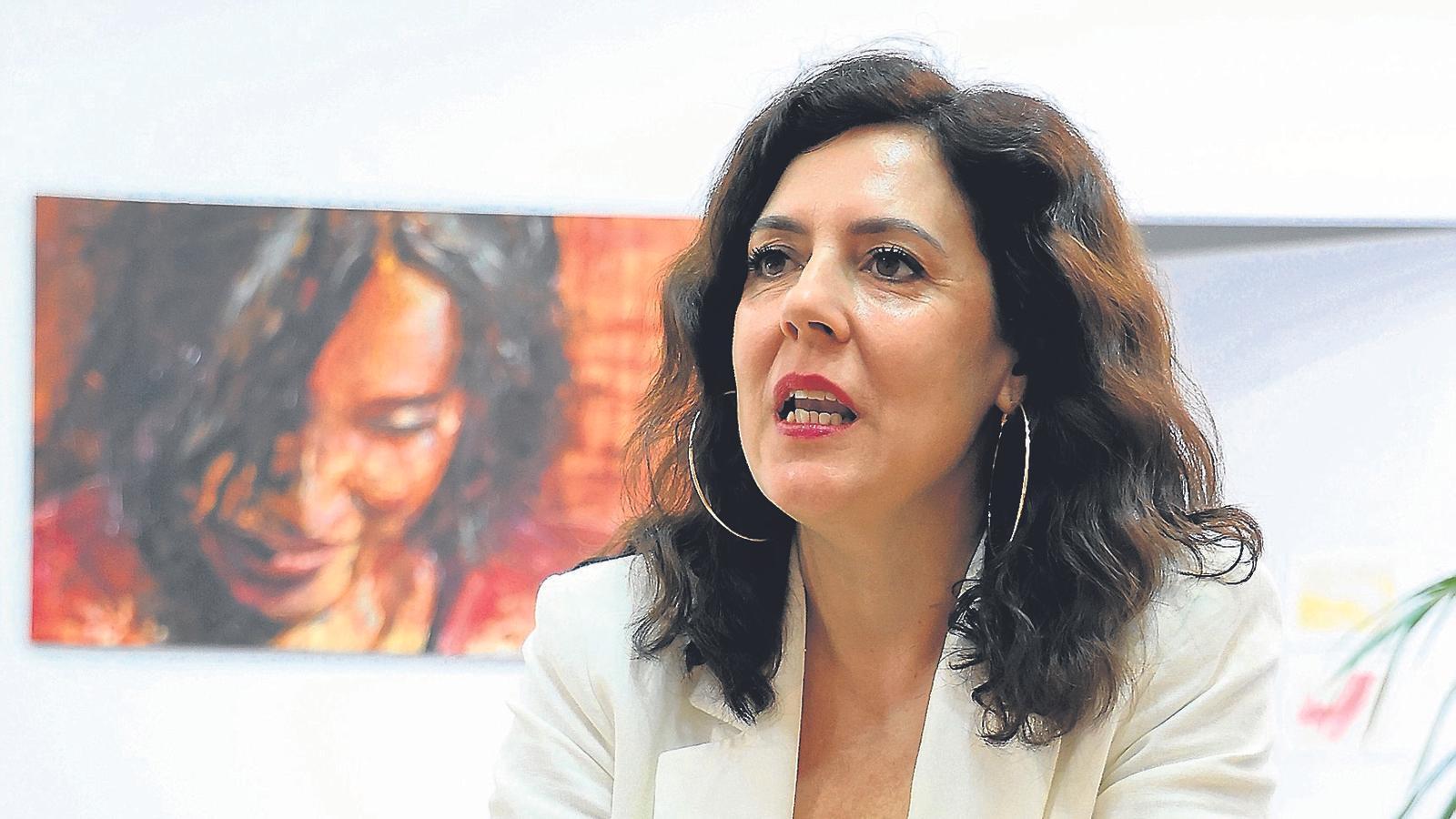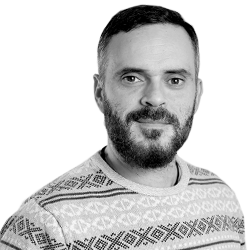Sandra Fernández: "We will promote a law for people with disabilities."
Counselor for Family, Social Welfare and Dependency Care


PalmSandra Fernández (Palma, 1980) is the new regional government minister for Family, Social Welfare, and Care for Dependent People following the departure of Catalina Cirer. She cites her as a key figure and is grateful for giving her her first political opportunity in the Balearic Islands. Her portfolio is marked by the challenge of reducing waiting lists: 14,500 people are waiting for a disability assessment; 3,700 for a dependency assessment; and 2,500 for the Individual Care Program (PIA).
You were Minister of Social Affairs in the Bauzá administration. How have society's needs changed over the years?
— Poverty has become chronic because the leftist government of recent years has done nothing to reverse it. Certain policies focus on subsidies and aid, but fail to address personal empowerment and empowerment so people can make decisions. Mental health is a cross-cutting issue in our electoral platform.
What was the task the president gave you, and why did you decide to accept it?
— I have a lot of confidence in the president, and when Catalina Cirer decided to step aside, she gave me this role because I had previous experience and believed I could be the best person to lead the project. We're a party-oriented person, and if my president asks me, we're here. Besides, I love social services. The challenge is huge. I take it on with responsibility and great enthusiasm.
Would you have accepted the assignment under the previous structure, with more responsibilities, including immigration and cooperation, among others?
— Yes. This government is a team. It doesn't matter where the powers lie. We're working toward the same goal. It's not a question of who has the power or not. In the end, we're a team.
What do you think went wrong in the first half of the legislative period?
— I don't think anything has gone wrong. We must improve and strengthen political action.
Do you think the party has been fair to Catalina Cirer? They've been full of praise, and now they have a restructured department, with fewer powers, for keeping her in office.
— I know it was a personal decision, and she gave the appropriate explanations. We've expressed our affection and gratitude for her professional career. She's a role model, a woman who has paved the way for those of us who came after her.
Cirer has received applause from the left for standing up to Vox on issues of immigration and equality. How much do you think this friction has influenced the change?
— I think nothing.
And how will you deal with partners like Vox, who call the Balearic Institute for Women (IBDona) "chibiu," demand its closure, and constantly attack feminism?
— The PP and Vox are two different parties, with different programs, and through negotiations, we reach agreements. The agreements do not include closing the IBDona. It's fine to disagree. We think the IBDona does a magnificent job, for example, by strengthening services such as 24-hour care, supporting women victims of gender-based violence.
By the end of 2024, 7,400 people had died while waiting for their dependency assessment. How do you feel about such a number?
— An area like this can give you great satisfaction when you achieve positive things that impact people. With figures like these, the exact opposite is true. We're not talking about numbers, but about people and families suffering this situation and feeling powerless in the face of an administration that should be on their side. You can't explain to them that we don't have staff, that it's difficult to fill positions due to the situation in the Balearic Islands, or that the State should fund 50% of the cost of dependency but only funds 20%. That's why our main objective is to implement an emergency plan for dependency, which we will present in September. We cannot allow people to suffer without the support of the administration.
What will your measures be?
— We will introduce bridges, equivalences between disability and dependency, which will reduce administrative procedures. The more we reduce this burden on staff, the more we will have available to serve the waiting list. We will also increase the home care service by 18,400 hours, reducing its waiting list by 400 people. We will also promote a law on the rights of people with disabilities. I don't think any autonomous community has one, but we believed we should guarantee the rights of people with disabilities by law. We want to reach an agreement with the third sector. We want to make it together.
Will you streamline procedures with the councils and the IMAS?
— We will activate the Balearic Islands Observatory for Children and Adolescents as a way to coordinate and streamline policies for children and adolescents. We will seek a way to involve the regional councils, Palma City Council, and FELIB. This department covers other administrations and maintains constant contact with the regional councils and IMAS because the responsibilities are shared.
Are you planning to add new staff to the Ministry?
— This is a path initiated by Minister Cirer. We've now added eight nurses to care for dependents, and the emergency plan also includes strengthening the civil service structure.
In a context of an aging population like ours, will investment in nursing homes and home care services increase?
— We must develop a comprehensive medium- and long-term approach with councils and town halls, not just the construction of [residence homes] but also see what other types of resources and services we can strengthen and incorporate to care for older people who want to stay in their own homes. Without the need for residences. We must focus on ensuring that they arrive with the greatest possible autonomy and the best quality of life. We have a limited area, and often [a residence] isn't even the solution families want.
The Spanish executive warned the government that it would face the consequences if it refused to accept migrant minors. How will it handle this?
— I'm outraged that it's been conveyed that we don't want to take in minors. We're doing this as a direct arrival community, and this has left the protection systems completely overwhelmed, at 1,000% occupancy, struggling to find staff. What we're saying is that they can't send us more. We're overbooked. This excludes Catalonia and the Basque Country. It's a political move by Pedro Sánchez.
Why has migration ceased to be the responsibility of the Regional Ministry?
— In the Presidency, a comprehensive approach is possible because it affects everyone. The minister is familiar with the subject matter, and the decision was made to improve the Government's overall performance.
How do you deal with the fact that the Director General of Immigration and Cooperation is a national police officer who, in a statement, linked immigration to crime? Do you consider this type of discourse appropriate?
— These statements were made as a representative of a police union. It wasn't a direct association, but rather to provide some information. I think Pavón is aware of the Balearic Islands' weaknesses in state resources and has experience in immigration issues. He is, in addition to being a national police officer, a social educator. It's possible to engage in dialogue with him, and I have no doubt he will do his job excellently. I don't agree with the criminalization of the National Police because they have a responsibility to provide social services, protecting victims and minors.
How will you re-establish dialogue with the third sector after they abandoned the inclusion pacts?
— We've gotten things back on track. Neither relationships nor dialogue are broken. I don't understand social services without the third sector, the best in all of Spain.
What measures will you take to improve the working conditions of Pinaret workers?
— We have approved the hazard bonus, a long-standing demand, and we are reviewing the job description to strengthen the workforce.
What role should immigration play in Balearic society?
— It's necessary, but we're committed to legal and regulated immigration. The problem with illegal immigration is that the Spanish government neglects its functions and lacks a real immigration policy in the Balearic Islands, which makes their coexistence difficult. Those seeking a better life don't find it because we can't offer it. The Immigration Service staff is practically dismantled, and there are people who can't regularize their situation, even though they could, because they can't get an appointment. The system also doesn't help, for example, with the recognition of qualifications. Issues like these could offer a life plan that could benefit society. The Spanish government is interested in creating social division with immigration. We can't welcome everyone for purely physical reasons. We must also work cooperatively in the countries of origin so that they aren't forced to leave. A comprehensive immigration policy is necessary.
